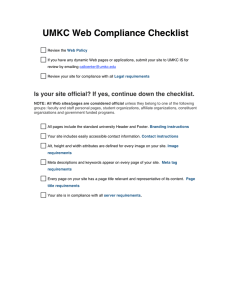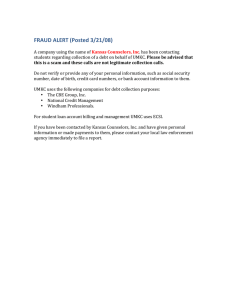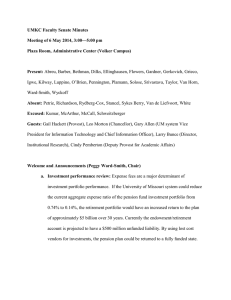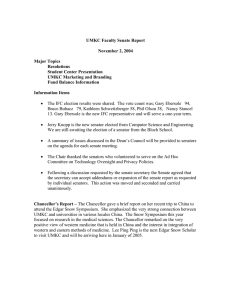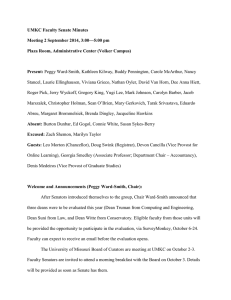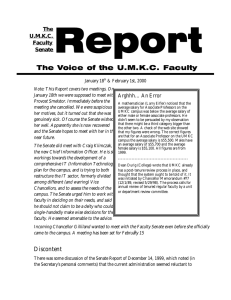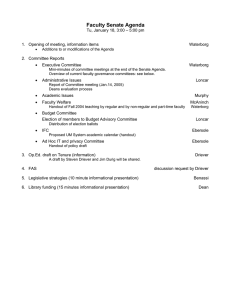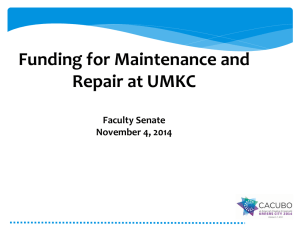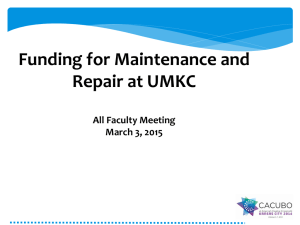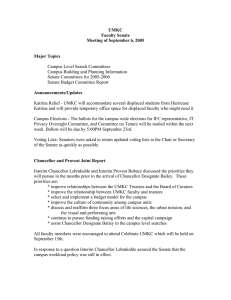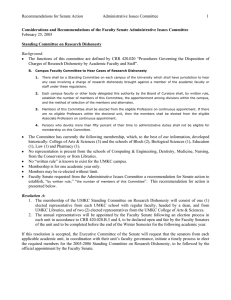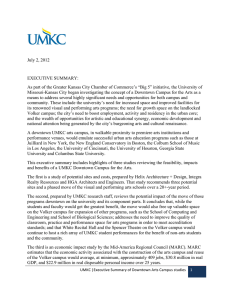MEMORANDUM TO: FROM:
advertisement
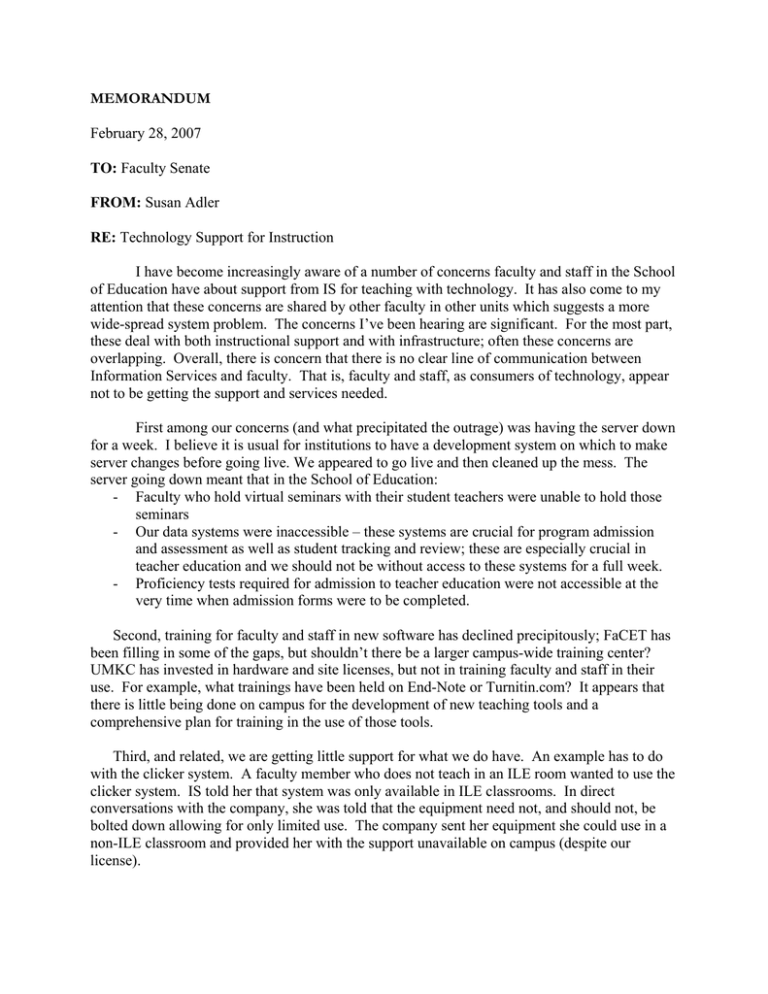
MEMORANDUM February 28, 2007 TO: Faculty Senate FROM: Susan Adler RE: Technology Support for Instruction I have become increasingly aware of a number of concerns faculty and staff in the School of Education have about support from IS for teaching with technology. It has also come to my attention that these concerns are shared by other faculty in other units which suggests a more wide-spread system problem. The concerns I’ve been hearing are significant. For the most part, these deal with both instructional support and with infrastructure; often these concerns are overlapping. Overall, there is concern that there is no clear line of communication between Information Services and faculty. That is, faculty and staff, as consumers of technology, appear not to be getting the support and services needed. First among our concerns (and what precipitated the outrage) was having the server down for a week. I believe it is usual for institutions to have a development system on which to make server changes before going live. We appeared to go live and then cleaned up the mess. The server going down meant that in the School of Education: - Faculty who hold virtual seminars with their student teachers were unable to hold those seminars - Our data systems were inaccessible – these systems are crucial for program admission and assessment as well as student tracking and review; these are especially crucial in teacher education and we should not be without access to these systems for a full week. - Proficiency tests required for admission to teacher education were not accessible at the very time when admission forms were to be completed. Second, training for faculty and staff in new software has declined precipitously; FaCET has been filling in some of the gaps, but shouldn’t there be a larger campus-wide training center? UMKC has invested in hardware and site licenses, but not in training faculty and staff in their use. For example, what trainings have been held on End-Note or Turnitin.com? It appears that there is little being done on campus for the development of new teaching tools and a comprehensive plan for training in the use of those tools. Third, and related, we are getting little support for what we do have. An example has to do with the clicker system. A faculty member who does not teach in an ILE room wanted to use the clicker system. IS told her that system was only available in ILE classrooms. In direct conversations with the company, she was told that the equipment need not, and should not, be bolted down allowing for only limited use. The company sent her equipment she could use in a non-ILE classroom and provided her with the support unavailable on campus (despite our license). It appears that policy decisions regarding software and web use seem to be made with no consultation with faculty. Such policies have a major impact, particularly on the work of our more technologically savvy faculty. Faculty who try to do innovative work with teachers, both in courses and through grants which bring teachers to campus, feel as though they are being told why they may not do something instead of being helped to do what needs to be done. This does not help faculty and makes UMKC look bad to our school constituents. Finally, one of the themes I’ve heard regarding work with IS has been that of “attitude.” I’m told that when people report problems they are told that the only possible explanation could be one of user error. As we investigate, and talk with others, we find that our problems are campus wide. This is not an acceptable approach to problem-solving and support. It is not professional, it does not show respect for the knowledge and skills of faculty and staff in the academic units, and it does not reflect a spirit of collaboration within the university. IS has good guidelines (see UMKC Network Policy), but they seem to be interpreted in a manner which restricts, rather than supports, faculty. I’m told that requests for assistance are met with resistance rather than creative problem-solving. This results in a waste of administrative time and system funds. It appears to me as though there has been little input of faculty in decision-making regarding the use of instructional technology. I recommend that the Senate facilitate the establishment of clear lines of communication between Information Services and the faculty being served. We might, for example, form a technology oversight committee which works with Information Services and reports to the Senate. From the complaints I’ve been hearing, it is essential that we help create a policy of support and service in the use of technology.
